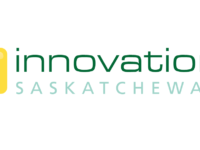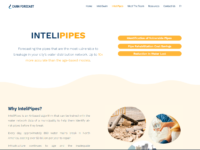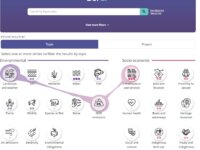The Government of Canada is experimenting writing existing laws and proposed regulations into code. Encoding rules allows us to run legal simulations in the regulatory drafting room, which helps us detect ambiguities, loopholes, and gaps in the rules that often go unnoticed. However, existing tools designed by and for programmers are not intuitive for rule-makers. In response, we set out to develop one – an open-source Rules as Code tool called Blawx.
Case Study Library
Where innovations are collected and shared to disseminate and replicate good ideas

Innovations:
0
This website, as well as any data and map included herein, are without prejudice to the status of or sovereignty over any territory, to the delimitation of international frontiers and boundaries and to the name of any territory, city or area.
Administrative burden is red tape - mandatory processes that continue to exist that have nothing to do with an internal policy's intention. It is experienced not only by citizens trying to access a service, but also public servants trying to deliver it. The Government of Canada is looking at streamlining its administrative policies relating to Service and Digital by applying an administrative burden lens to it.
In response to Innovation Saskatchewan's call for public sector challenges through its Innovation Challenge, the Ministry of Environment partnered with Prairie Robotics, a Regina-based AI startup, to tackle waste audits. Their AI-powered solution automates waste audit processes, cutting down time, costs, and resources previously required for manual audits. The technology identifies contaminants in recycling streams and tailors educational materials to individual households, enhancing engagement,…
People are demanding increased transparency and participation in government decision-making processes. Project Heart brought together people with lived experience, researchers, designers, and policy analysts to co-envision a way for engagement to be meaningful and bring about more caring and equitable futures for all. The findings are a rallying call for governments to change common practices and move towards co-designing policies/programs as a path to (re)building community relationships.
Water networks are confronted with aging infrastructure, increased urban population, and climate change. The City of Greater Sudbury has collaborated with CANN Forecast to implement InteliPipes, an AI-based decision-support system that leverages various data sources to improve the overall reliability of its water network. With it the City can (a) understand better the network’s degradation over time, (b) tailor inspection plans and replacement programmes, and (c) optimise watermains…
Prioritization of projects and initiatives is often challenging and traditionally requires significant investment in administrative time and effort. The Town of Aurora has created a process that automates the prioritization of projects through an algorithm that scores projects based on Service Improvement, Financial Viability, Reputation Improvement and Ease of Implementation.
Governments are buried in hard-to-search PDF documents that hold data with great value for citizens, scientists, and public servants. At the Canada Energy Regulator, we developed data science methods to liberate 20 years – and tens of thousands of kilometres – of environmental and socio-economic data from over 1900 PDF documents from oil and gas pipeline applications. We made it easy to search and explore this data in our powerful and user-friendly search tool, BERDI.
As part of Gov. of Canada ininitiatives to measure regulatory burden, ministries have to report their Administrative Burden Baseline (ABB) a metric calculated using a decision tree based on the text of regulations. This is a long and tedious process that requires combing through regulation and manually parse individual provisions. The Regulatory Evaluation Platform automates that process (it takes seconds v. weeks when done manually) and makes it more timely by allowing for weekly refreshes.
IQed (Inquiries/Questions in education) utilizes cutting-edge Democratic Technology in classrooms for the purpose of empowering students and educators in Digital Literacy, Civic Literacy, Dynamic Engagement, Critical Thinking/Problem-Solving Skills and Global Competency Education. IQed enables every student to use their personal devices to explore, investigate and become informed on issues of governance and global matters, so that their voice can positively impact local and global communities.
Nova Scotia has 21 Community Transportation Operators serving mainly vulnerable populations in rural areas. The CTOs were unable to feasibly procure a common dispatch and scheduling solution that met their needs, leaving them with inefficiencies and inability to meet growing needs. The Outpost for Public Sector Innovation designed a new approach to co-designing and procuring solutions to complex challenges. Together with stakeholders, partners and vendors, two viable solutions were developed.




